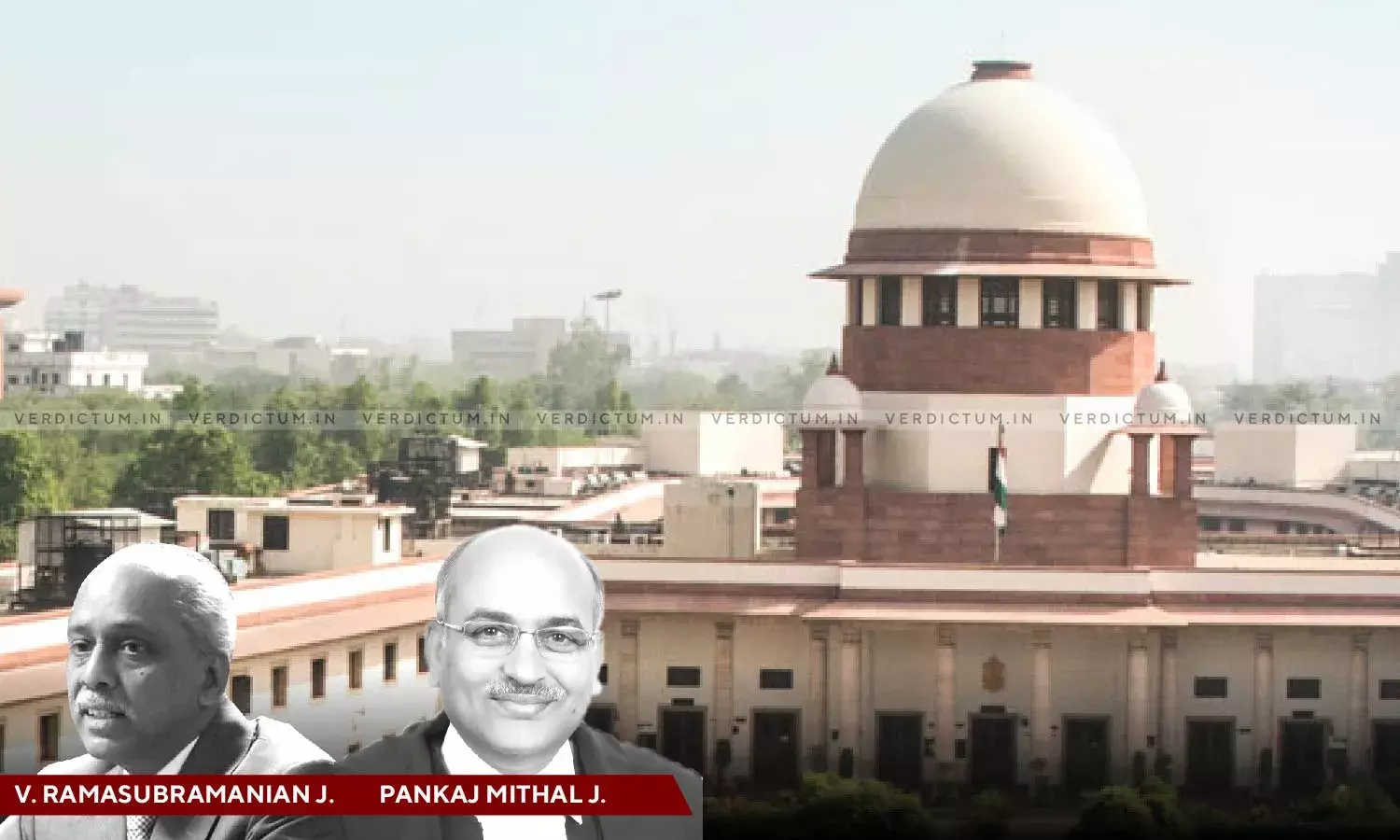Order VII Rule 11 CPC| Plaint Didn’t Show Particulars Of Registrar's Office- SC Allows LLP To Represent Before Jurisdictional Court

The Supreme Court while dealing with the appeals relating to Order VII Rule 10 and Order VII Rule 11 of the CPC (Civil Procedure Code) allowed the appellant LLP (Limited Liability Partnership) to represent its plaint before the jurisdictional Court at Bengaluru within a period of four weeks.
The Court noted that the plaint did not show the particulars of the Office of the Registrar where the deeds of confirmation were registered and the deeds of power of attorney were registered and subsequently cancelled.
The two-Judge Bench comprising Justice V. Ramasubramanian and Justice Pankaj Mithal held, “The plaint does not even show the particulars of the Office of the Registrar where the deeds of confirmation were registered and the deeds of power of attorney were registered and subsequently cancelled. Though a relief is sought to direct the Registrar to cancel the deeds of revocation of power of attorney, the details of the Office of the Registrar are not provided and he is also not made a party. … It is open to the appellants to represent the plaint before the jurisdictional court at Bengaluru, within a period of four weeks.”
The Bench was hearing the appeals that arose out of a common order passed by the Bombay High Court allowing two revision applications that were directed against two separate orders passed on the same day by the 9th Joint Civil Judge, Senior Division, Pune, respectively in the applications filed under Order VII Rule 10 and Order VII Rule 11 CPC.
Senior Advocate Shyam Divan appeared on behalf of the appellants while Senior Advocates Mukul Rohatgi and K.V. Viswanathan appeared on behalf of the respondents.
In this case, the appellants filed a civil suit on the file of the 9th Joint Civil Judge against 141 defendants seeking various reliefs. After service of summons, some of the defendants filed separate applications under Order VII Rule 10 CPC seeking the return of the plaint for presentation to the proper court, on the ground that the suit schedule properties are situated within the jurisdiction of the appropriate courts in Bengaluru.
One of the defendants filed one more application under Order VII Rule 11(a) and (d) CPC, seeking rejection of the plaint, contending that the court in Pune does not have territorial jurisdiction to grant reliefs in respect of immovable properties situated within the jurisdiction of the courts in Bengaluru and also that the suit is barred by the provisions of the Companies Act, 2013. The Trial Court dismissed all the applications and thereafter, the High Court allowed both the civil revision applications.
The Supreme Court after hearing the contentions of the counsel observed, “… it is clear that by instituting the present proceedings at Pune for temporary reliefs and reserving the right to institute a suit for substantial reliefs at Bengaluru at a later point of time, the appellants-plaintiffs want to take these 141 defendants residing in ten different States of India on a Bharat Darshan from Pune to Bengaluru.”
The Court said that if the appellants had to seek recovery of possession, in the event of the decree in the suit being disobeyed, they will necessarily have to go to the court in Bengaluru.
“It is seen from several portions of the plaint that the appellants have done a tight-rope walking to take refuge under Section 20(c) CPC by carefully avoiding any relief that may apparently appear to relate to Section 16(d) CPC”, the Court noted.
The Court further said that the High Court was right in holding that the suit falls under the category of one, for the determination of any right to or interest in the immovable property covered by Section 16(d).
“The partition suit itself is of the year 2007 and we cannot lose sight of the ground reality that in most of the civil disputes, half the battle is won through interim orders. We do not think that the court should be a party to the practice of allowing a litigant to use one court for the purpose of temporary reliefs and another court for permanent reliefs”, asserted the Court.
Accordingly, the Court partly allowed the appeals.
Cause Title- Future Sector Land Developers LLP & Anr. v. Bagmane Developers P. Ltd. & Ors. Etc.
Click here to read/download the Judgment


